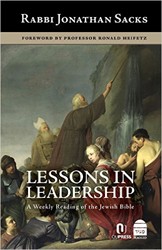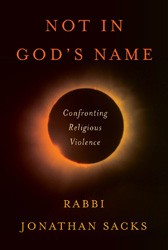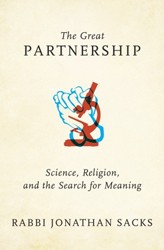Essays on Ethics joins Lessons in Leadership in Rabbi Jonathan Sacks’s ongoing series of online “Covenant and Conversation” essays on the weekly Torah reading.
As in the previous essays, Rabbi Sacks displays a wide-ranging erudition with respect to Jewish and general culture, as well as an impressive ability to express complex ideas in readily-accessible presentations, citing primary and secondary Jewish sources intertwined with a broad spectrum of philosophers, theologians, psychologists, anthropologists, neurological researchers, economists, politicians, historians, painters, and musicians.
In his introduction to this book, entitled “Seven Features of Jewish Ethics,” Rabbi Sacks outlines the areas that he believes to inform Judaism’s overall approach towards the moral life, and therefore throughout the contents of the Bible: the dignity of the individual, human freedom, the sanctity of life, guilt instead of shame, loyalty and love, the ethics of covenant, and the dual covenant. Stories from Genesis — with some portions of the other Five Books of Moses — lend themselves most readily to highlighting these ethical and moral themes. Rabbi Sacks identifies manifestations of moral ideas in the legal portions of the Bible as well, reflecting his belief in the need for students of the Bible to consciously consider ta’amei hamitzvot, or the reasons that underlie the Commandments. A discussion of the Tabernacle in Parashat Teruma, for example gives rise to a meditation upon voluntary giving; the sending forth of a scapegoat on the Day of Atonement, mentioned in Acharei Mot, generates a comparison of “guilt societies” as opposed to “shame societies”; the delineation of the laws of the Nazirite in Naso serves as a context for considering how the themes of moderation and balance impact the quest to live a moral life; and the directive in Va’etchanan “to do what is right and good in the sight of the Lord” leads to consideration of how the moral life combines concern for both the universal and the particular in our dealings with our fellow man.
Essays on Ethics once again demonstrates Rabbi Sacks’s wonderful ability to explicate the core texts of Judaism in the context of not only the broader Jewish tradition, but of Western intellectual tradition overall. Each short essay can serve as a catalyst to much broader reading, learning and discussion. This is a volume that should not be missed.





